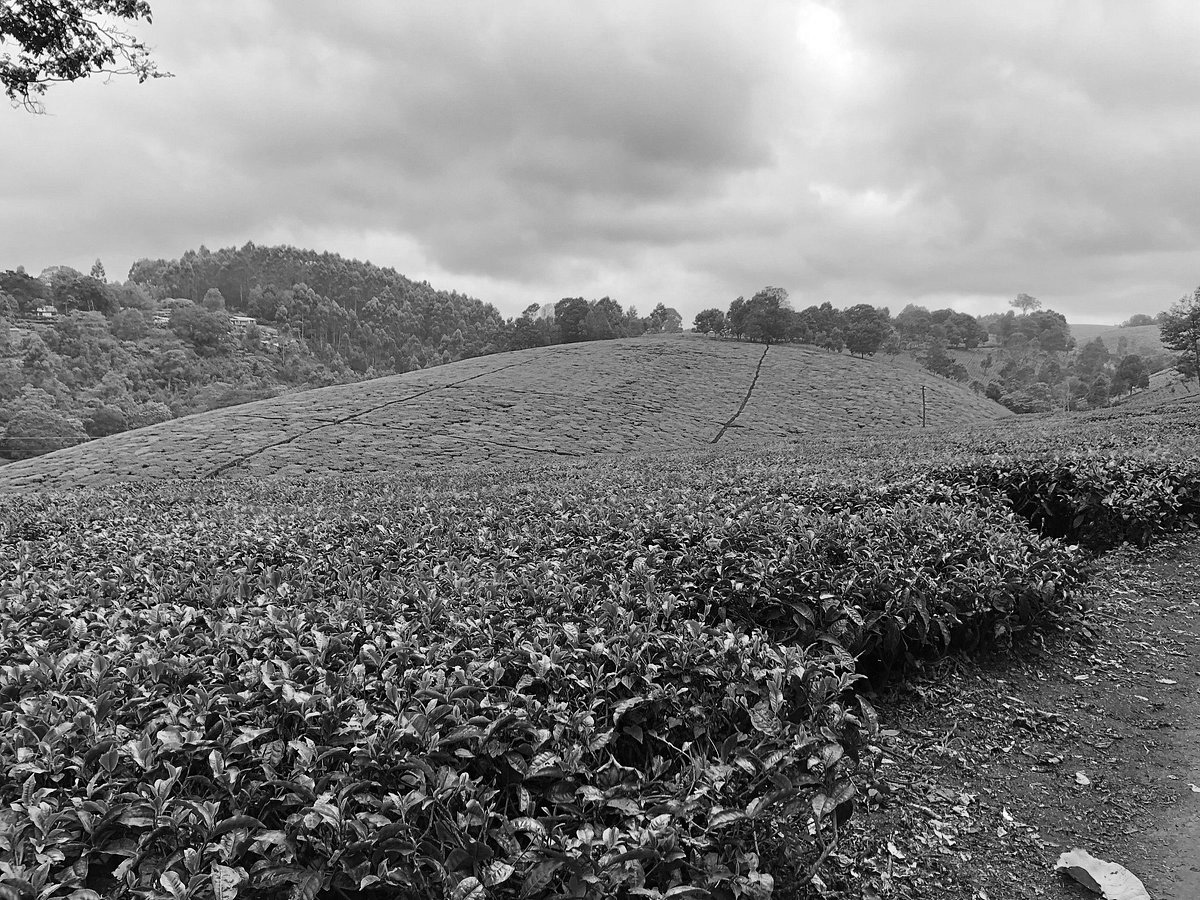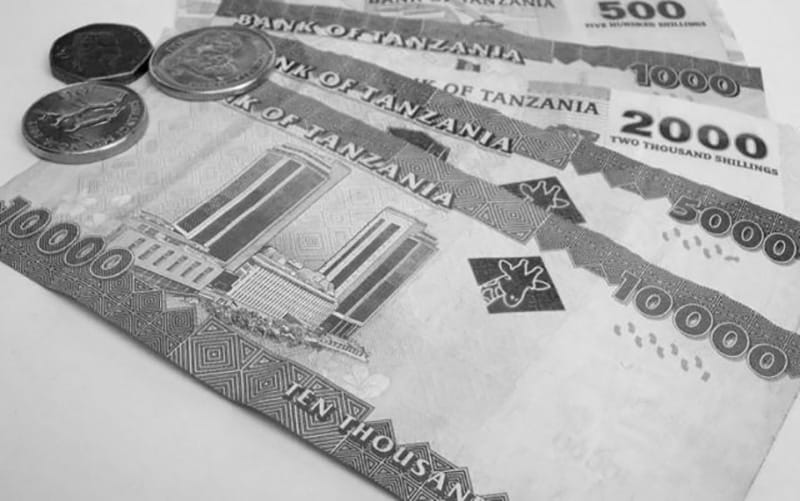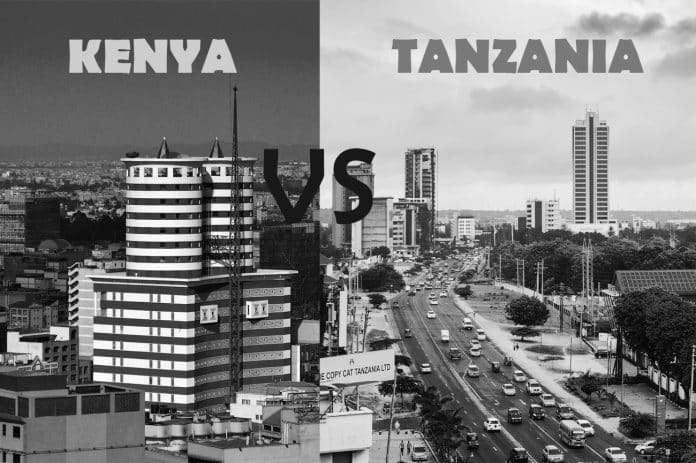Exploring the Economic Landscapes: A Comparison of Kenya and Tanzania
Kenya and Tanzania, two countries in East Africa, offer unique and contrasting economic landscapes that have shaped their development. In this article, we will compare Kenya and Tanzania economy, we will explore their strengths, challenges, and opportunities.
With a diverse economy, Kenya has emerged as one of the largest and fastest-growing economies in Africa. Its strategic location, robust infrastructure, and dynamic business environment have attracted foreign investment and positioned the country as a regional hub for trade and finance. Meanwhile, Tanzania, with its rich natural resources and vast agricultural potential, has experienced steady economic growth in recent years. The country is focused on developing its mining, tourism, and manufacturing sectors to drive economic diversification and reduce reliance on agriculture.
We will examine various aspects as we compare Kenya and Tanzania economy. We will look at aspects such as GDP growth, investment climate, sectors of growth, and challenges faced by both countries. By understanding the economic landscapes of Kenya and Tanzania, we gain insight into their unique opportunities for investment, trade, and collaboration.
Join us on this comparative journey as we unravel the fascinating economic stories of Kenya and Tanzania and explore the factors that have shaped their paths to development.
Overview of Kenya’s Economy

To be able to compare Kenya and Tanzania economy effectively, we must look critically into each country’s economy. Kenya’s economy has experienced remarkable growth over the years, making it one of the largest economies in Africa. The country boasts a diversified economy, with key sectors such as agriculture, manufacturing, services, and information technology contributing significantly to its GDP. Kenya’s GDP has been growing at an average rate of 5-6% in recent years, driven by increased investment, infrastructure development, and a growing middle class.
The agricultural sector plays a crucial role in Kenya’s economy, employing a significant portion of the population and contributing to food security. The country is a major exporter of tea, coffee, flowers, and vegetables. Additionally, Kenya has made significant strides in the manufacturing sector, particularly in textiles, chemicals, and construction materials. The services sector, including tourism, telecommunications, and financial services, has also experienced substantial growth.
However, to compare Kenya and Tanzania economy effectively, we must also take note of the negative aspects as well. Kenya’s economy faces several challenges. Income inequality remains a significant issue, with a significant portion of the population living below the poverty line. Furthermore, corruption and bureaucratic inefficiencies hinder economic progress. Despite these challenges, Kenya continues to attract foreign investment and has positioned itself as a regional economic powerhouse.
Key Industries and Sectors in Kenya

Kenya’s key industries and sectors contribute significantly to the country’s economic growth and development. The agricultural sector, as mentioned earlier, is one of the pillars of Kenya’s economy. It includes the production of various crops such as tea, coffee, horticulture products, and maize. The country’s favorable climate and fertile lands make it an ideal location for agricultural activities.
The manufacturing sector in Kenya has also shown tremendous potential. To effectively compare Kenya and Tanzania economy , the manufacturing industry must be taken into account. Textiles and garments, food processing, and construction materials are some of the sub-sectors that have experienced significant growth. The government has implemented various policies and incentives to attract foreign investors and promote industrialization.
The services sector is another vital component of Kenya’s economy. Tourism plays a crucial role, with the country attracting millions of visitors each year. Additionally, the financial services sector has experienced significant growth, with Nairobi emerging as a major financial hub in East Africa. Other services such as telecommunications, transport, and logistics also contribute to Kenya’s economic development.
Strengths and Challenges of Kenya’s Economy
Kenya’s economy has several strengths that contribute to its growth and potential. As we compare Kenya and Tanzania economy, we must look into these aspects as well. Its strategic location as a gateway to East and Central Africa provides a significant advantage for trade and investment. The country’s robust infrastructure, including ports, airports, and road networks, facilitates regional connectivity and trade.
Furthermore, Kenya’s vibrant entrepreneurial culture and innovation ecosystem have attracted major global companies and startups. The availability of skilled labor, particularly in the technology sector has contributed to the growth of the information technology and business process outsourcing industries.
However, as we compare Kenya and Tanzania economy , the challenges that Kenya needs to address for a sustained economic growth needs to be noted as well. The high levels of income inequality and poverty hinder inclusive development. Additionally, corruption and bureaucratic inefficiencies pose obstacles to doing business in the country. Addressing these challenges will be crucial for Kenya to unlock its full economic potential.
Overview of Tanzania’s Economy

Tanzania, with its rich natural resources and vast agricultural potential, has experienced steady economic growth in recent years. The country’s economy is mainly driven by agriculture, which employs the majority of the population and contributes significantly to GDP. Tanzania is a major producer and exporter of cash crops such as coffee, tea, tobacco, and cotton.
In recent years, Tanzania has focused on diversifying its economy and reducing its reliance on agriculture. The government has prioritized the development of sectors such as mining, tourism, and manufacturing. As we compare Kenya and Tanzania economy , it’s important to note that the mining sector, in particular, has shown great potential, with Tanzania being one of Africa’s largest gold producers. The country also has significant reserves of natural gas, coal, and gemstones.
The tourism sector is another key industry in Tanzania, attracting millions of visitors each year. The country’s natural beauty, including national parks, wildlife, and pristine beaches, make it a popular destination for safari enthusiasts and beach lovers alike. The manufacturing sector, although still in its early stages, is expected to play a more significant role in Tanzania’s economic development in the future.
Key Industries and Sectors in Tanzania
To balance things out as we compare Kenya and Tanzania economy, we must take note of the key industries and sectors in Tanzania as well. Tanzania’s key industries and sectors play a vital role in the country’s economic growth and development. The agricultural sector, as mentioned earlier, remains the backbone of Tanzania’s economy. The country’s favorable climate and fertile lands make it suitable for the cultivation of various crops, including cash crops and food crops.
The mining sector in Tanzania has shown significant potential for growth and investment. The country is rich in mineral resources, including gold, diamonds, coal, and gemstones. Tanzania has attracted major mining companies, and the government has implemented policies and incentives to promote responsible and sustainable mining practices.
The tourism sector is another important industry to take note of as we compare Kenya and Tanzania economy. This industry has contributed significantly to job creation and foreign exchange earnings in Tanzania. The country’s natural attractions, including Mount Kilimanjaro, the Serengeti National Park, and Zanzibar’s beaches, make it a popular destination for tourists from around the world. The government has implemented strategies to enhance tourism infrastructure and promote sustainable tourism practices.
Strengths and Challenges of Tanzania’s Economy
Tanzania’s economy has several strengths that contribute to its growth and potential. The country’s abundant natural resources, particularly minerals and agricultural products, provide a solid foundation for economic development. Additionally, Tanzania’s vast land area presents opportunities for agricultural expansion and investment.
Furthermore, as we compare Kenya and Tanzania economy, it’s also necessary to take note of Tanzania’s commitment to attracting foreign direct investment and promoting private sector participation as this has created a favorable investment climate. The government has implemented policies to improve infrastructure, streamline business processes, and protect investors’ rights.
However, Tanzania also faces challenges that need to be addressed for sustained economic growth. Infrastructure gaps, particularly in transport and energy, hinder economic development. Additionally, the country’s education and skills development systems need improvement to meet the demands of a rapidly changing economy. Addressing these challenges will be crucial for Tanzania to unlock its full economic potential.
A Comparison of Kenya and Tanzania’s Economic Performance
As we compare Kenya and Tanzania economy , several factors come into play. Kenya’s more diversified economy, with strengths in sectors such as agriculture, manufacturing, and services, has contributed to its higher GDP growth rate over the years. Tanzania’s economy, on the other hand, has been driven primarily by agriculture, with recent efforts to diversify into sectors such as mining and tourism.
Both countries face challenges such as income inequality, corruption, and bureaucratic inefficiencies. However, Kenya’s more developed infrastructure and business environment have attracted higher levels of foreign investment and positioned it as a regional hub for trade and finance. Tanzania’s focus on economic diversification and natural resource exploitation presents significant opportunities for growth.
Investment Opportunities in Kenya and Tanzania
As we compare Kenya and Tanzania economy , it’s clear that both economies offer attractive investment opportunities across various sectors. In Kenya, sectors such as agriculture, manufacturing, tourism, and information technology present potential areas for investment. The country’s entrepreneurial culture and innovation ecosystem make it an ideal location for startups and technology companies.
In Tanzania, investment opportunities exist in sectors such as mining, tourism, agriculture, and infrastructure development. The government’s commitment to promoting private sector participation and creating a conducive investment climate has attracted major companies and investors.
Investors looking to tap into the East African market should compare Kenya and Tanzania economy and consider diligently the unique opportunities offered by nations. Each country has its strengths and potential for growth, and a comprehensive understanding of their economic landscapes is essential for making informed investment decisions.
Which Country Offers More Potential for Economic Growth?
Both Kenya and Tanzania have unique economic landscapes and offer attractive opportunities for economic growth. Kenya’s diverse economy, strategic location, and dynamic business environment position it as a regional economic powerhouse. On the other hand, Tanzania’s rich natural resources and focus on economic diversification present significant potential for growth.
Ultimately, the potential for economic growth in both countries depends on various factors, including policy implementation, infrastructure development, and addressing challenges such as income inequality and corruption. Investors and businesses must carefully compare Kenya and Tanzania economy and assess the specific sectors and industries that align with their objectives. They must also take into account the unique strengths and challenges of each country.
By understanding the economic landscapes of Kenya and Tanzania, we gain valuable insights into the opportunities and potential for investment, trade, and collaboration in East Africa. Whether it’s Kenya’s vibrant entrepreneurial culture or Tanzania’s untapped mineral resources, both countries have much to offer for those seeking to be part of Africa’s economic growth story.
For more articles related to the Economy of Tanzania click here!

































